Hacker Conference 1984
description: a pivotal gathering of hackers and computer enthusiasts in 1984 that helped define hacker culture and ethos.
23 results
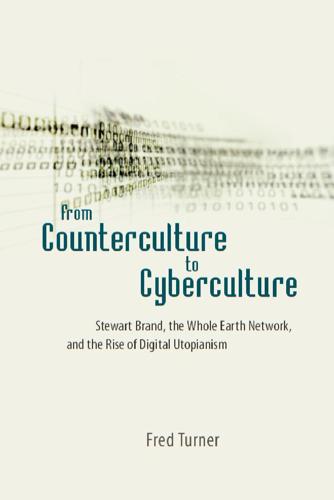
From Counterculture to Cyberculture: Stewart Brand, the Whole Earth Network, and the Rise of Digital Utopianism
by
Fred Turner
Published 31 Aug 2006
Tough had been a member of the WELL for six months, and in recruiting the thirty or so participants in the forum, Tough leaned heavily [ 168 ] Chapter 5 on internal WELL networks.73 He selected some contributors, such as Lee Felsenstein and John Draper, who were in fact accomplished hackers. Many of these participants had migrated to the WELL after attending the Hackers’ Conference at Fort Cronkhite in 1984. Tough also selected many participants who could not have been described as hackers but who had been longtime, high-visibility participants on the WELL. These included Stewart Brand, Howard Rheingold, Kevin Kelly, and John Perry Barlow. Tough later recalled that he chose these participants in part for the fact that they had participated in debates about hacking on the WELL and in part because they wrote vivid prose.74 Yet it also seems likely that a network dynamic was at work here.
…
Finally, in addition to WELL regulars, Tough included Emmanuel Goldstein, the editor of 2600, a New York quarterly devoted to the how-to’s of hacking, and, on Goldstein’s recommendation, two young, practicing hackers who worked under the pseudonyms Acid Phreak and Phiber Optik. When they joined the discussion on the WELL, Phreak and Optik immediately set off a culture clash. The conflict could be seen clearly in the edited version of the forum eventually printed in Harper’s. Like the online forum, and like its predecessor, the Hackers’ Conference of 1984, the conversation opened with a discussion of the hacker ethic. WELL regulars described the ethic in cybernetic and countercultural terms familiar to their online colleagues. Lee Felsenstein compared hackers to the “Angelheaded hipsters” of Allen Ginsberg’s poem “Howl.” John Perry Barlow described them as solitary inventors designing a system through which humans would acquire the simultaneous unity of other “collective organisms.”
…
The end is to reverse-engineer government, to hack Politics down to its component parts and fix it.”25 The urge to “hack” politics by bringing governance down to a manageable local level and by basing social integration on technologically facilitated forms of consciousness was one of the driving impulses behind the New Communalist movement. Now, however, the old hammer-and-sawwielding, do-it-yourself ethos of the back-to-the-landers had been fused to the craft ethic of computer programmers. Much as Stewart Brand and his Whole Earth colleagues had done at the Hacker’s Conference of 1984, Quittner and Dyson joined the cultural legitimacy of the counterculture to the technological and economic legitimacy of the computer industry. Married to a libertarian longing for the reduction of government, Dyson’s Internet became an idealized political sphere in the image of the forms of organization pursued by the Merry Pranksters, USCO, and many communes— forms in which authority was distributed, hierarchies were leveled, and citizens were linked by invisible energies.

The new village green: living light, living local, living large
by
Stephen Morris
Published 1 Sep 2007
A world-class dilettante and advocate of the unusual perspective, Brand’s other works include The Media Lab, How Buildings Learn, and The Clock of the Long Now.“What do I do?” Brand asks at his own website.“I find things and I found things.Things I find include tools, ideas, books, and people, which I blend and purvey.Things I’ve founded and co-founded include the Trips Festival (1966), Whole Earth Catalog (1968), Hackers Conference (1984),The WELL (1984), Global Business Network (1988), and The Long Now Foundation (1996).” 154 chapter 7 : Whole Earth Catalog Stewart Brand: “ “ Environmental health requires peace, prosperity, and continuity.” Information Wants To Be Free. Information also wants to be expensive. Information wants to be free because it has become so cheap to distribute, copy, and recombine — too cheap to meter.
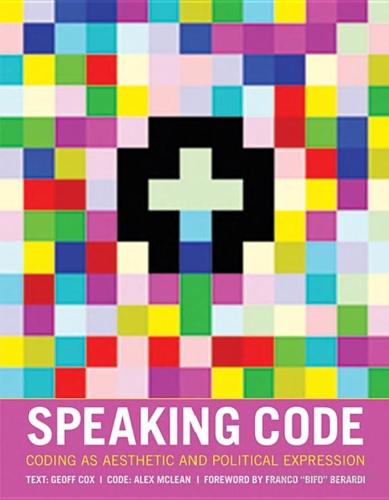
Speaking Code: Coding as Aesthetic and Political Expression
by
Geoff Cox
and
Alex McLean
Published 9 Nov 2012
A replica of Vaucanson’s mechanical duck, created by Frédéric Vidoni, can be seen at the Musée des Automates, Grenoble, France. 31. Virno, Multitude, 190. 32. The slogan “Information wants to be free” is attributed to Stewart Brand, who argued that technology could be liberating rather than oppressing. The earliest recorded occurrence of the expression was at the first Hackers Conference in 1984. Brand said: “On the one hand information wants to be expensive, because it’s so valuable. The right information in the right place just changes your life. On the other hand, information wants to be free, because the cost of getting it out is getting lower and lower all the time. So you have these two fighting against each other.”
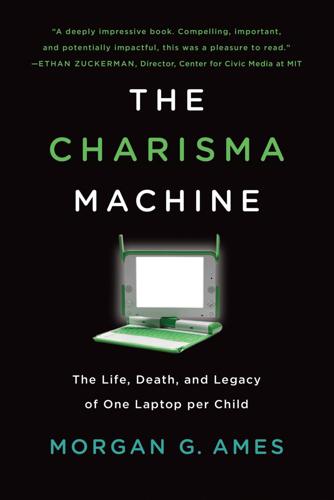
The Charisma Machine: The Life, Death, and Legacy of One Laptop Per Child
by
Morgan G. Ames
Published 19 Nov 2019
Gabriella Coleman examines this context in detail, charting the heterogeneous movements that fall under the umbrella of “hackers” and showing that Levy’s account is specific to MIT rather than being indicative of hackers more broadly—though it is at least legible across much of the technology world (see, e.g., Coleman, “Hacker Conference”; Coleman and Golub, “Hacker Practice”; Coleman, Coding Freedom). Tying this hacker ethos to the material world, cultural historian Fred Turner shows how the hacker identity was actively constructed at the first Hackers Conference in 1984 in relation to Levy’s “hacker ethic,” the 1960s counterculture, and certain forms of work (Turner, “Digital Technology”). Bringing in the social and legal ramifications of hacking, critical media theorist Helen Nissenbaum discusses how this hacker identity is contested and has changed from being positive and countercultural in the 1980s to one associated with criminality outside of hacker circles in the 1990s due to changes in the computing industry, hacker values, laws, and popular culture (Nissenbaum, “Hackers and the Contested Ontology of Cyberspace”).
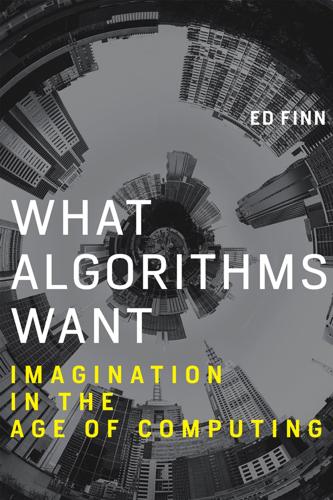
What Algorithms Want: Imagination in the Age of Computing
by
Ed Finn
Published 10 Mar 2017
In Snow Crash, Hiro Protagonist satirically defines the icon of the hacker figure, working at the periphery of monolithic cultural systems to make crucial interventions through technical skill, idealistic motivation, and a blithe disregard for traditional mores. Hiro is a character right out of the trickster archetype that technology journalist Steven Levy chronicles in Hackers; a character who came to life around Silicon Valley pioneer Stewart Brand’s Hackers Conference in 1984.2 The computational systems of the novel, from the various security systems to the Metaverse itself, were created by hackers and are subject to their manipulations. As a high-water mark in the cyberpunk genre, Snow Crash both embellished and consecrated hackers as potent and capricious architects of computational reality.
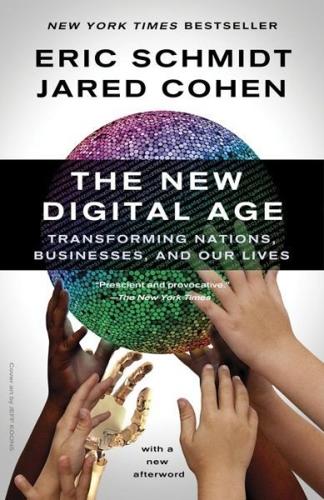
The New Digital Age: Transforming Nations, Businesses, and Our Lives
by
Eric Schmidt
and
Jared Cohen
Published 22 Apr 2013
There is an underside to SEO, however—“black-hat SEO”—where efforts to manipulate rankings include less legal or fair practices like sabotaging other content (by linking it to red-flag sites like child pornography), adding hidden text or cloaking (tricking the spiders so that they see one version of the site while the end user sees another). 2 This dictum is commonly attributed to Stewart Brand, the founder and editor of the Whole Earth Catalog, recorded at the first Hackers’ Conference, in 1984. 3 While in the technical community the term “hacker” means a person who develops something quickly and with an air of spontaneity, we use it here in its colloquial meaning to imply unauthorized entry into systems. 4 Among the tweets the Pakistani IT consultant Sohaib Athar sent the night of the bin Laden raid: “Helicopter hovering above Abbottabad at 1AM (is a rare event).” 5 “Predictive analytics” is a young field of study at the intersection of statistics, data-mining and computer modeling.
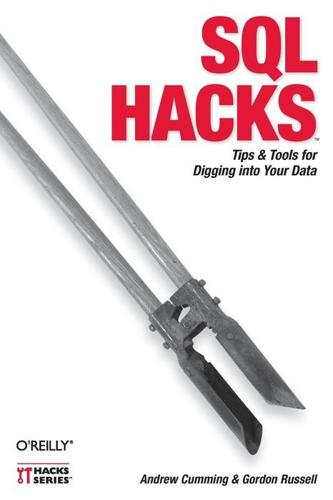
SQL Hacks
by
Andrew Cumming
and
Gordon Russell
Published 28 Nov 2006
It also serves as a deterrent: in itself, it can't prevent dishonest alteration of the data, but when users know that their every move is being recorded, they will be less tempted to cheat. Chapter 12. Wider Access "Information wants to be free." So said Stewart Brand at the first Hackers Conference in 1984. If you take a few precautions, you can share your data with the world by giving SQL access to any Internet user. Both of the authors of this book have been allowing public access to their SQL machines for years, with few problems. Generally we find that a hundred local, "trusted" users cause more trouble than hundreds of thousands of external users.
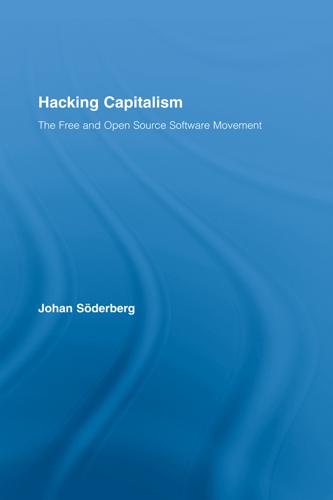
Hacking Capitalism
by
Söderberg, Johan; Söderberg, Johan;
Furthermore, it encourages us to look for new kinds of labour conflicts arising out of the enrollment of volunteer developers, such as black-hat hacking, cracking and pirate sharing.46 From this vantage point we can proceed to look at the themes debated in the computer underground with more of a critical distance. Information Exceptionalism ‘Information wants to be free’ has long been the rallying cry of hackers, crackers and file sharers. The words were first coined at a hacker conference in 1984 by Stewart Brand, a senior figure in the American counter-culture movement. The saying has since come to live a life of its own among devotees. Likewise, sceptics have commonly dismissed cyber-politics by replying that ‘information doesn’t want anything’. Looking closer at what Stewart Brand actually said makes it clear that his thought was a bit more sophisticated than is given away by the catch phrase: “Information wants to be free.

The Automatic Customer: Creating a Subscription Business in Any Industry
by
John Warrillow
Published 5 Feb 2015
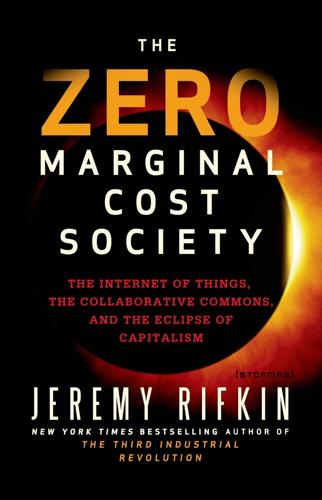
The Zero Marginal Cost Society: The Internet of Things, the Collaborative Commons, and the Eclipse of Capitalism
by
Jeremy Rifkin
Published 31 Mar 2014
Their slogan was “information wants to be free,” coined by Stewart Brand, one of the few who bridged the Appropriate Technology Movement and hacker culture. (The Whole Earth Catalog, which Brand edited, helped elevate the Appropriate Technology Movement from a niche subculture to a broader cultural phenomenon.) What’s often lost in Brand’s remarks on the software revolution is the rest of the utterance, which he delivered at the first hackers conference in 1984: On the one hand information wants to be expensive, because it’s so valuable. The right information in the right place just changes your life. On the other hand, information wants to be free, because the cost of getting it out is getting lower and lower all the time. So you have these two fighting against each other.31 Brand saw early on the coming contradiction between intellectual-property rights and open-source access.
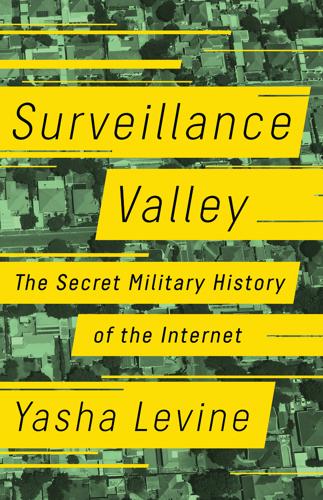
Surveillance Valley: The Rise of the Military-Digital Complex
by
Yasha Levine
Published 6 Feb 2018
He also launched the Good Business Network, a corporate consulting company that applied his counterculture public relations strategies to problems faced by clients such as Shell Oil, Morgan Stanley, Bechtel, and DARPA.31 He also organized an influential computer conference that brought together leading computer engineers and journalists.32 It was called, simply, “Hackers’ Conference” and was held in Marin County in 1984. About 150 of the country’s top computer geniuses attended, including Apple’s Steve Wozniak. Brand cleverly stage-managed the event to give the group maximum cultural cachet. To hear him and other believers tell it, the event was the “Woodstock of the computer elite!” Newspaper accounts regaled readers with tales of strange nerds with fantastical visions of the future.
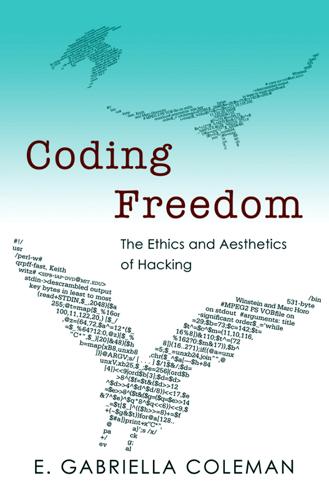
Coding Freedom: The Ethics and Aesthetics of Hacking
by
E. Gabriella Coleman
Published 25 Nov 2012
The Bay Area Linux Events Web site, for example, listed eight different meetings/events between March 1 and 8, 2005. See http://www.linuxmafia.com/bale/ (accessed August 2, 2009). In the last five years, hacker workshop spaces, such as Noisebridge in San Francisco, have been established in cities across Europe and North America. 21. Some of the first hacker cons were the Hackers Conference held in California (1984), the Computer Chaos Club Congress held in Germany (1984), and Summercon held in Saint Louis (1987). 22. While no hacker con can be called a tame affair, they do, however, exist on a spectrum, ranging from the large and wild, to more subdued and intimate affairs. Most hacker cons mix socializing with hacking, gaming, and talks/panels, which span from the purely technical to the fabulously silly, with many legal, political, and historical oddities and talks in between. 23. http://gravityboy.livejournal.com/35787.html (accessed July 2, 2009). 24.
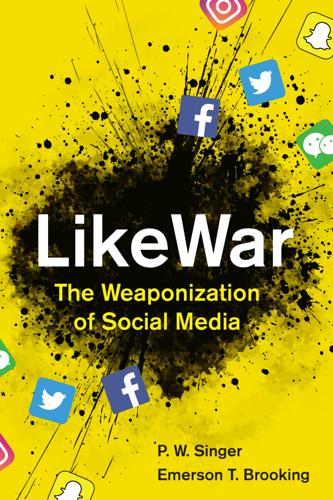
Likewar: The Weaponization of Social Media
by
Peter Warren Singer
and
Emerson T. Brooking
Published 15 Mar 2018
In the right hands, those lies can become powerful weapons. 4 The Empires Strike Back Censorship, Disinformation, and the Burial of Truth “Truth” is a lost cause and . . . reality is essentially malleable. —PETER POMERANTSEV AND MICHAEL WEISS, “The Menace of Unreality” “INFORMATION WANTS TO BE FREE,” declared web pioneer and counterculture icon Stewart Brand at the world’s first Hackers Conference in 1984. This freedom wouldn’t just sound the death knell of censorship; it would also mark the end of authoritarian regimes that relied on it. After all, what government could triumph against a self-multiplying network of information creators and consumers, where any idea might mobilize millions in a heartbeat?
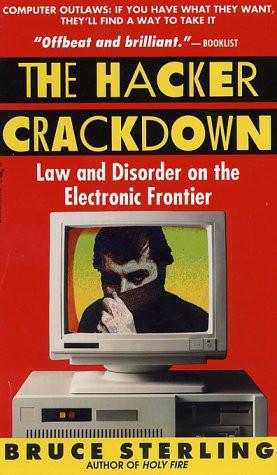
The Hacker Crackdown
by
Bruce Sterling
Published 15 Mar 1992
Barlow, chatting helpfully and demonstrating the wonders of his modem to the puzzled fed, was alarmed to find all "hackers" generally under FBI suspicion as an evil influence in the electronic community. The FBI, in pursuit of a hacker called "NuPrometheus," were tracing attendees of a suspect group called the Hackers Conference. The Hackers Conference, which had been started in 1984, was a yearly Californian meeting of digital pioneers and enthusiasts. The hackers of the Hackers Conference had little if anything to do with the hackers of the digital underground. On the contrary, the hackers of this conference were mostly well-to-do Californian high-tech CEOs, consultants, journalists and entrepreneurs.
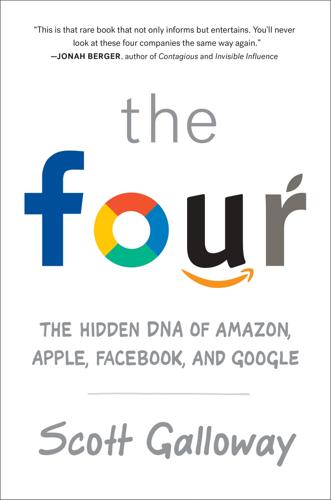
The Four: How Amazon, Apple, Facebook, and Google Divided and Conquered the World
by
Scott Galloway
Published 2 Oct 2017

Whole Earth: The Many Lives of Stewart Brand
by
John Markoff
Published 22 Mar 2022
—Journal, April 1977 “On the one hand information wants to be expensive, because it’s so valuable. The right information in the right place just changes your life. On the other hand, information wants to be free, because the cost of getting it out is getting lower and lower all the time. So you have these two fighting against each other.” —First Hacker’s Conference, November 1984 “ ‘It’s a small world after all,’ sang Disneyland. We didn’t know it was a threat. Now the world is becoming Disney World.” —Journal, while preparing to leave for Africa, June 1985 “Charisma is theft. Commitment is a trap. If the group says, and means your life, ‘you’re either on the bus or off the bus,’ get off the bus.”
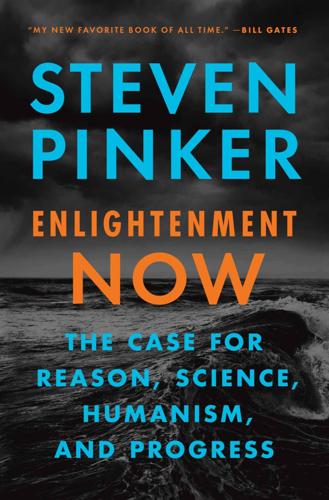
Enlightenment Now: The Case for Reason, Science, Humanism, and Progress
by
Steven Pinker
Published 13 Feb 2018
According to this narrative, technology allows people to accomplish more and more with less and less, so given enough time, it will allow one individual to do anything—and given human nature, that means destroy everything. But Kevin Kelly, the founding editor of Wired magazine and author of What Technology Wants, argues that this is in fact not the way technology progresses.40 Kelly was the co-organizer (with Stewart Brand) of the first Hackers’ Conference in 1984, and since that time he has repeatedly been told that any day now technology will outrun humans’ ability to domesticate it. Yet despite the massive expansion of technology in those decades (including the invention of the Internet), that has not happened. Kelly suggests that there is a reason: “The more powerful technologies become, the more socially embedded they become.”
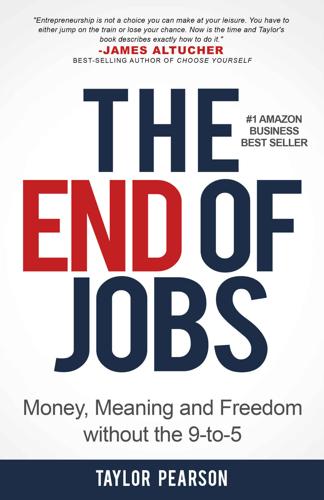
The End of Jobs: Money, Meaning and Freedom Without the 9-To-5
by
Taylor Pearson
Published 27 Jun 2015
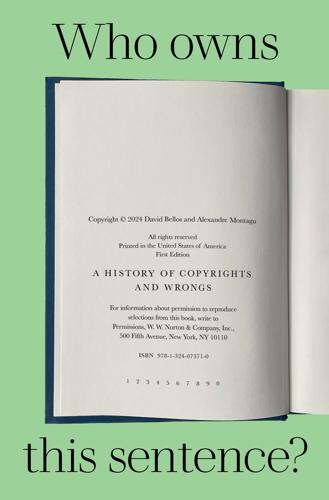
Who Owns This Sentence?: A History of Copyrights and Wrongs
by
David Bellos
and
Alexandre Montagu
Published 23 Jan 2024
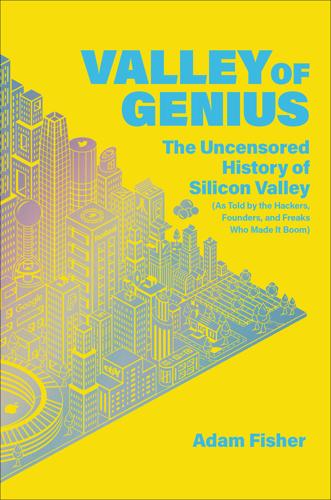
Valley of Genius: The Uncensored History of Silicon Valley (As Told by the Hackers, Founders, and Freaks Who Made It Boom)
by
Adam Fisher
Published 9 Jul 2018
But then there is a third set of values that are much less common: and they are the values essentially of the art world or the artist. And artistic values are when you want to create something new under the sun. If you want to contribute to art, your technique isn’t what matters. What matters is originality. It’s an emotional value. Bruce Sterling, Brenda Laurel, and Steven Levy: The Hackers Conference, which was first held in 1984, is where Silicon Valley technical types started to recognize themselves as a culture 9 Left to right: Bruce Sterling, Brenda Laurel, Steven Levy. This was the moment where the consciousness of that time really became something that you could pick up on. Just like in the gay movement where there was a time when people just felt incredibly alone, that there was no one else like them.
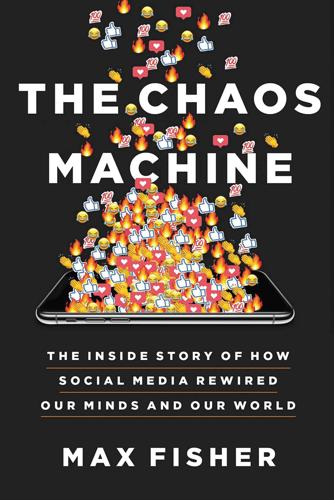
The Chaos Machine: The Inside Story of How Social Media Rewired Our Minds and Our World
by
Max Fisher
Published 5 Sep 2022

Cool Tools in the Kitchen
by
Kevin Kelly
and
Steven Leckart
Published 1 Dec 2011
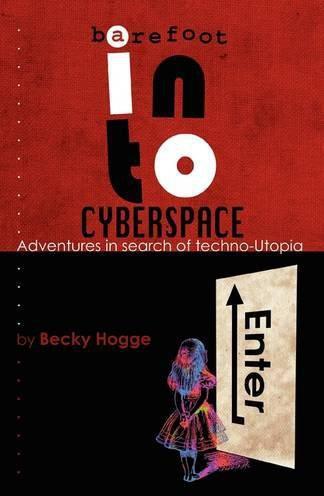
Barefoot Into Cyberspace: Adventures in Search of Techno-Utopia
by
Becky Hogge
,
Damien Morris
and
Christopher Scally
Published 26 Jul 2011